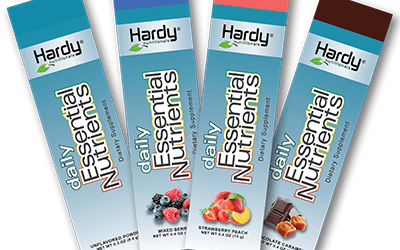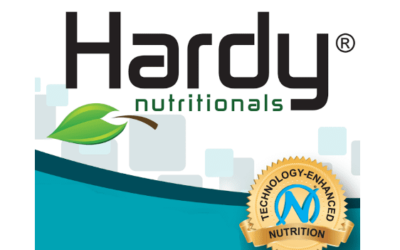How Herbs and Supplements Can Boost Therapy and Neurofeedback Outcomes

Neuroplasticity—the brain’s remarkable ability to reorganize itself by forming new neural connections—underlies our capacity to learn, adapt, and recover from injury. This fascinating mechanism is the foundation for therapeutic approaches like neurofeedback and various forms of psychological therapy. Recent research suggests that specific herbs and supplements may enhance neuroplasticity, potentially amplifying the benefits of these treatments and accelerating progress toward mental wellness.
Understanding Neuroplasticity and Its Role in Therapy
Neuroplasticity represents the brain’s lifelong ability to restructure itself in response to learning and experience. This essential biological mechanism enables rehabilitation and recovery for people with neurological disorders and underlies the effectiveness of various therapeutic approaches, including neurofeedback. When we engage in therapy or neurofeedback training, we’re essentially harnessing neuroplasticity to create more adaptive neural pathways and behaviors.
Neurofeedback, a type of biofeedback that measures brain waves and provides real-time feedback, takes advantage of the brain’s neuroplastic capabilities to help people improve their brainwave patterns. This process can lead to enhanced focus, reduced anxiety, better emotional regulation, and other cognitive improvements. Similarly, various forms of psychological therapy work by creating new behavioral and thought patterns that eventually become encoded in neural pathways through repeated practice.
Key Nutrients and Compounds That Support Neuroplasticity
Brain-Derived Neurotrophic Factor (BDNF) Enhancers
BDNF is often described as “fertilizer for the brain,” playing a crucial role in neuroplasticity. This protein promotes the growth and survival of neurons, enhances the connections between them, and fosters the creation of new neural networks. Several natural compounds have been shown to increase BDNF levels, potentially supporting therapeutic outcomes:
Lion’s Mane Mushroom (Hericium erinaceus): This adaptogenic mushroom has demonstrated neuroprotective and cognitive-enhancing effects in studies, with research suggesting it may promote BDNF production and benefit memory, learning, and overall brain health.
Omega-3 Fatty Acids: Essential for brain function, omega-3s (particularly DHA) support neuroplasticity by maintaining the fluidity and flexibility of neuronal cell membranes, optimizing synaptic transmission, supporting healthy inflammatory responses, and potentially increasing BDNF levels.
Botanicals That Modulate Neuroplasticity
A growing body of research has identified several plant-based compounds that may positively influence neuroplasticity through various mechanisms:
Ginkgo Biloba: This ancient Chinese herb has been extensively studied for its effects on cognitive function. Research shows that Ginkgo biloba leaf extract can restore levels of BDNF protein in cells under certain conditions and may improve cerebral blood flow through its antioxidant properties.
Bacopa Monnieri: Traditional in Ayurvedic medicine, Bacopa has been shown to support cognitive function and may enhance neuroplasticity through its effect on BDNF expression and antioxidant properties.
Perilla Frutescens: Also known as zi-su in Chinese medicine, studies have found that essential oil from Perilla leaf can normalize BDNF gene expression and protein levels in the hippocampus of chronically stressed mice, potentially supporting neuroplasticity mechanisms involved in stress resilience.
Panax Ginseng: Research suggests that ginsenosides, the active compounds in ginseng, are effective modulators of neuroplasticity, though studies have noted heterogeneity in evaluating individual ginsenosides.
Anti-inflammatory and Antioxidant Supports
Inflammation and oxidative stress can impair neuroplasticity by damaging neurons and disrupting communication between brain cells. Several compounds can help counteract these effects:
Curcumin: Found in turmeric, curcumin crosses the blood-brain barrier and exhibits both anti-inflammatory and antioxidant properties that may support brain health and neuroplasticity.
Green Tea Compounds: L-theanine and EGCG found in green tea have been studied for their potential to enhance BDNF production and support cognitive function.
Antioxidants: These compounds support neuroplasticity by neutralizing reactive oxygen species (ROS) that can damage neurons and their components, preserving neuronal function and viability.
Enhancing Neurofeedback Outcomes with Nutritional Support
Neurofeedback relies on the brain’s ability to adapt and change in response to feedback, making it inherently dependent on neuroplastic mechanisms. Research has shown that after just two neurofeedback sessions using theta/beta training protocol, changes in brainwave patterns were observable, indicating that neuroplasticity had already begun to occur. Supplementing this process with nutrients that support neuroplasticity may potentially enhance and accelerate these changes.
For individuals undergoing neurofeedback for attention issues, supplements that support dopamine production (such as L-tyrosine) might be beneficial, while those seeking relief from anxiety might benefit from GABA-supporting compounds like L-theanine or magnesium.
Practical Applications for Therapy Enhancement
For psychological therapies that involve learning new thought patterns or behaviors—such as cognitive behavioral therapy (CBT), dialectical behavior therapy (DBT), or EMDR—neuroplasticity is essential to the rewriting of maladaptive neural pathways. Supplements that enhance neuroplasticity may potentially make this process more efficient.
Timing supplement intake to coincide with therapy sessions might maximize their impact. For example, taking BDNF-enhancing supplements shortly before engaging in therapeutic work could potentially prime the brain for change. However, it’s crucial to note that this approach should always be coordinated with healthcare providers to ensure safety and appropriateness.
Integration Strategies for Optimal Results
To leverage the potential of neuroplasticity-enhancing supplements alongside therapy or neurofeedback, consider these integration strategies:
- Personalized Assessment: Work with healthcare providers to identify specific nutritional needs based on individual neurochemistry, symptoms, and therapeutic goals.
- Coordinated Timing: Align supplement regimens with therapy schedules to potentially maximize neuroplastic windows of opportunity.
- Comprehensive Approach: Combine supplements with other neuroplasticity-enhancing lifestyle factors such as regular exercise, quality sleep, stress management, and cognitive challenge.
- Monitoring and Adaptation: Track changes in therapeutic progress and adjust supplement protocols as needed based on observed responses.
- Patient Education: Understanding the role of neuroplasticity in recovery can enhance motivation and engagement with both supplementation and therapeutic work.
Safety and Efficacy Considerations
While research on neuroplasticity-enhancing supplements shows promise, several important considerations should guide their use:
- Quality and Sourcing: Select supplements from reputable manufacturers with third-party testing for purity and potency.
- Drug Interactions: Many herbs and supplements can interact with medications, including psychiatric medications. Professional guidance is essential.
- Individual Variation: Responses to supplements vary significantly between individuals due to genetic factors, existing neurochemistry, and health status.
- Adjunctive Role: Supplements should be viewed as potential enhancers of therapy, not replacements for evidence-based treatments.
Neurofeedback itself, while promising, has limitations including expense, time commitment, and the potential to worsen symptoms in some individuals. These considerations should be factored into decisions about supplementing neurofeedback with additional neuroplasticity supports.
Emerging Research and Future Directions
The field of neuroplasticity enhancement through natural compounds continues to evolve. Cutting-edge technologies such as brain-computer interfaces, robotic-assisted therapy, virtual reality applications, and wearable devices are revolutionizing neurorehabilitation by targeting and enhancing neuroplasticity through multiple pathways. Nutritional psychiatry and supplementation may increasingly be integrated with these approaches to create comprehensive neuroplasticity-enhancing protocols.
Future research may elucidate optimal dosing, timing, and combinations of supplements for specific neurological and psychiatric conditions. Additionally, personalized approaches based on genetic profiles and biomarkers may allow for increasingly targeted neuroplasticity enhancement strategies.
In Summary
The science of neuroplasticity offers a compelling framework for understanding how therapy and neurofeedback create lasting change in the brain. Nutritional compounds that support and enhance neuroplastic processes may serve as valuable adjuncts to these approaches, potentially accelerating progress and improving outcomes. While research in this area continues to develop, the integration of targeted supplementation with evidence-based therapies represents a promising frontier in mental health treatment.
As with any approach to mental wellness, the use of supplements to enhance neuroplasticity should be undertaken with professional guidance, careful monitoring, and as part of a comprehensive treatment plan. With these considerations in mind, neuroplasticity-enhancing supplements may offer a valuable tool for individuals seeking to maximize the benefits of therapy and neurofeedback interventions.
Note: This article is intended for informational purposes only and does not constitute medical advice. Always consult with qualified healthcare providers before beginning any supplement regimen, particularly when combined with therapeutic interventions.
For more information on supplemens for mental health consult our comprehensive guide for micronutrient and supplement therapy and how it can treat specific issues and enhance certain modalities of therapy.
If you’re interested in exploring micronutrient therapy as part of your anxiety treatment plan, Hardy Nutritionals offers a range of products to fit your specific needs. Their Daily Essential Nutrients clinical strength formula provides comprehensive, research-backed dosages in convenient capsule or powder form.
For 15% off in savings, use the offer code “Taproot” at checkout on the Hardy Nutritionals website to receive 15% off your order. @ GetHardy.com
It’s important to remember that while micronutrient therapy can be a powerful tool for managing anxiety, it is not a replacement for professional mental health care. Always consult with a qualified healthcare provider before starting any new supplement regimen, particularly if you have pre-existing health conditions or are taking medications.
Disclaimer: These statements have not been evaluated by the Food and Drug Administration. These products are not intended to diagnose, treat, cure, or prevent any disease. Please consult with a qualified healthcare professional before beginning any supplement regimen, particularly if you are pregnant, nursing, have a medical condition, or are taking medications. The information on this website doesnot constitute medical advice. We recieve a small commision on sales with Hardy Nutritionals through our offer code. Our affiliation does not effect treatment or recomendations made by Taproot authors, therapists or other staff.
























0 Comments